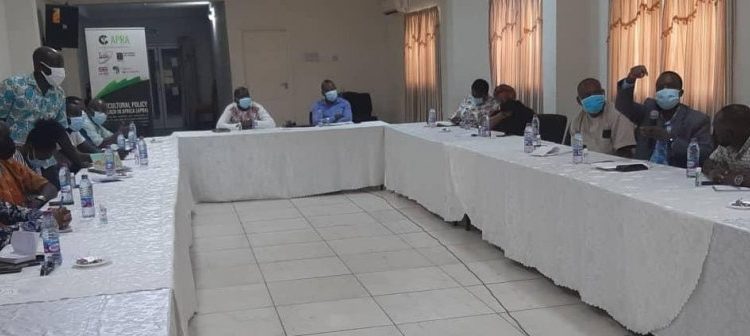Farmers and processors of oil palm in the Western Region have urged the government to create an oil palm board to meet the sector’s needs.
They claimed that the Board will assist in solving the sector’s many problems and exploiting the enormous potential of the oil palm value chain.
Farmers made the declaration at the University of Ghana Institute of Statistical, Social, and Economic Research (ISSER) during the Agricultural Policy Research in Africa (APRA) Project dissemination workshop .
Stakeholders from the Western Region attended the meeting, including , regional and district agricultural directors, opinion leaders, agricultural organizations, farmers, and farmer associations.
The workshop focused on a study conducted by a group of researchers from the University of Ghana, which looked at the effects and outcomes of agricultural commercialization on rural poverty, women’s empowerment, food and nutrition welfare, and rural poverty in Ghana and six other Sub-Saharan African countries.
The study looked at which farmers participated in oil palm commercialization agreements, the poverty effects of those who participated, and how these results varied among various communities.
It also examined whether different arrangements had differing effects on other farm and non-farm enterprises, as well as the relationships between different arrangements and resource distribution of other crops.
Read Also: Police Dog Sniffs Out Marijuana Worth 8m Dollars During Traffic Stop
In discussing the study, Mr Evan Koomson, a farmer from Aketanchie in the Ahanta West Municipal, said that the oil palm value chain had enormous potential.
However, it faced many obstacles, including the lack of a willing market, the land tenancy structure, oil and gas company operations, and the lack of mutual organizations and boards.
He clarified that since most oil palm farmers work under a land tenancy scheme, landlords can quickly evict them as they attract wealthy tenants such as oil and gas firms and illegal miners.
Mr Koomson said that the best way to solve the problem was for the government to establish a board similar to the COCOBOD that would efficiently track and manage the problems that the oil palm industry faces.
The oil palm was chosen for the research because it was considered a national priority crop because of its ability to alleviate hunger, its broad geographical coverage, and its use for both food and cash crops, according to Dr Kofi Takyi Asante, Research Fellow at ISSER, who brought the participants through the research findings.
He noticed that the oil palm was the second most valuable agricultural crop, accounting for one out of every ten.
According to him, oil palm output increased from 680,781 metric tonnes to 1,896, 760 metric tonnes between 2007 and 2019, creating about two million jobs across the value chain.
According to Dr. Asante, oil palm has a significant growth opportunity, but Ghana was unable to satisfy global demand for the crop due to a lack of availability.
According to him, the team’s research brought them to oil palm-growing communities in the Western Region, as well as oil palm companies including Benso oil palm plantation, Norpalm Ghana Limited, and B-BOVId processing factory.
According to the Research Fellow, 726 farming households were interviewed around 20 communities in Mpohor and Ahanta West.
He clarified that 27 percent of farmers had direct sales to oil palm firms, 33 percent sold to brokers, 29 percent sold their goods individually on the local market, and 11 percent artisanals refined into palm oil, alcohol, and soap.
According to the report, direct sales to Oil Palm Companies (OPCs) resulted in 5.2 percent more capital, while proximity to OPCs resulted in 1.5 percent more capital.
Farmers who sold their produce directly to the OPCs received more and were wealthier, according to the study, while those who sold to agents and individually sold on local markets were less satisfied.
The study found that there was a lot of room for improving the sector’s competitiveness, smallholder efficiency, and welfare by providing financial and resource access, as well as the opportunity to work directly with OPCs or process produce independently.
APRA is a five-year research project that draws on the future Agriculture consortium’s more than a decade of research and policy participation efforts.
Its aim is to generate new knowledge and gain insight into various agricultural commercialization pathways in order to determine their effects and outcomes on rural poverty, women’s empowerment, and food and nutrition welfare in Sub-Saharan Africa.
SOURCE: ATLFMONLINE

























